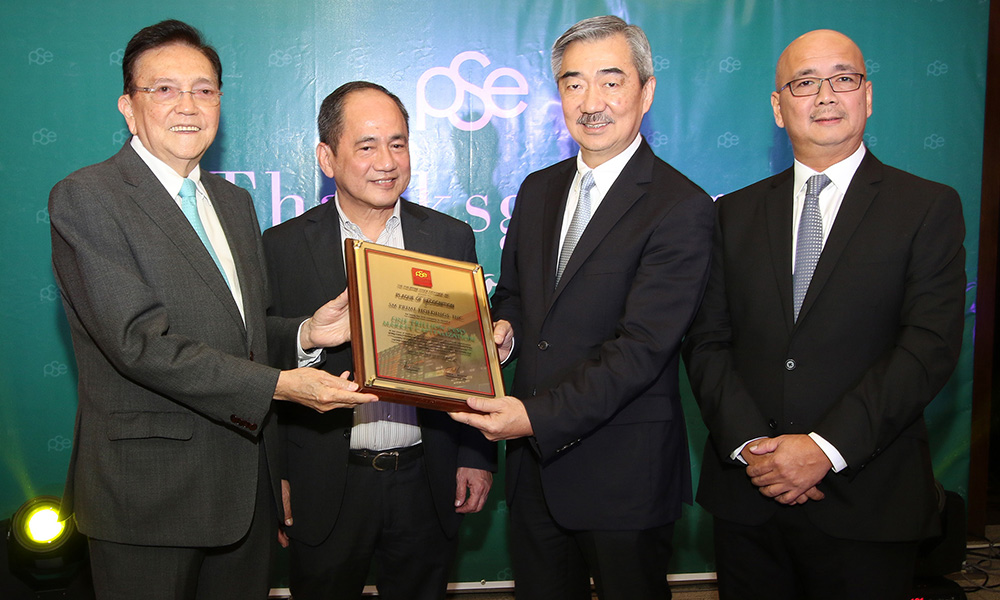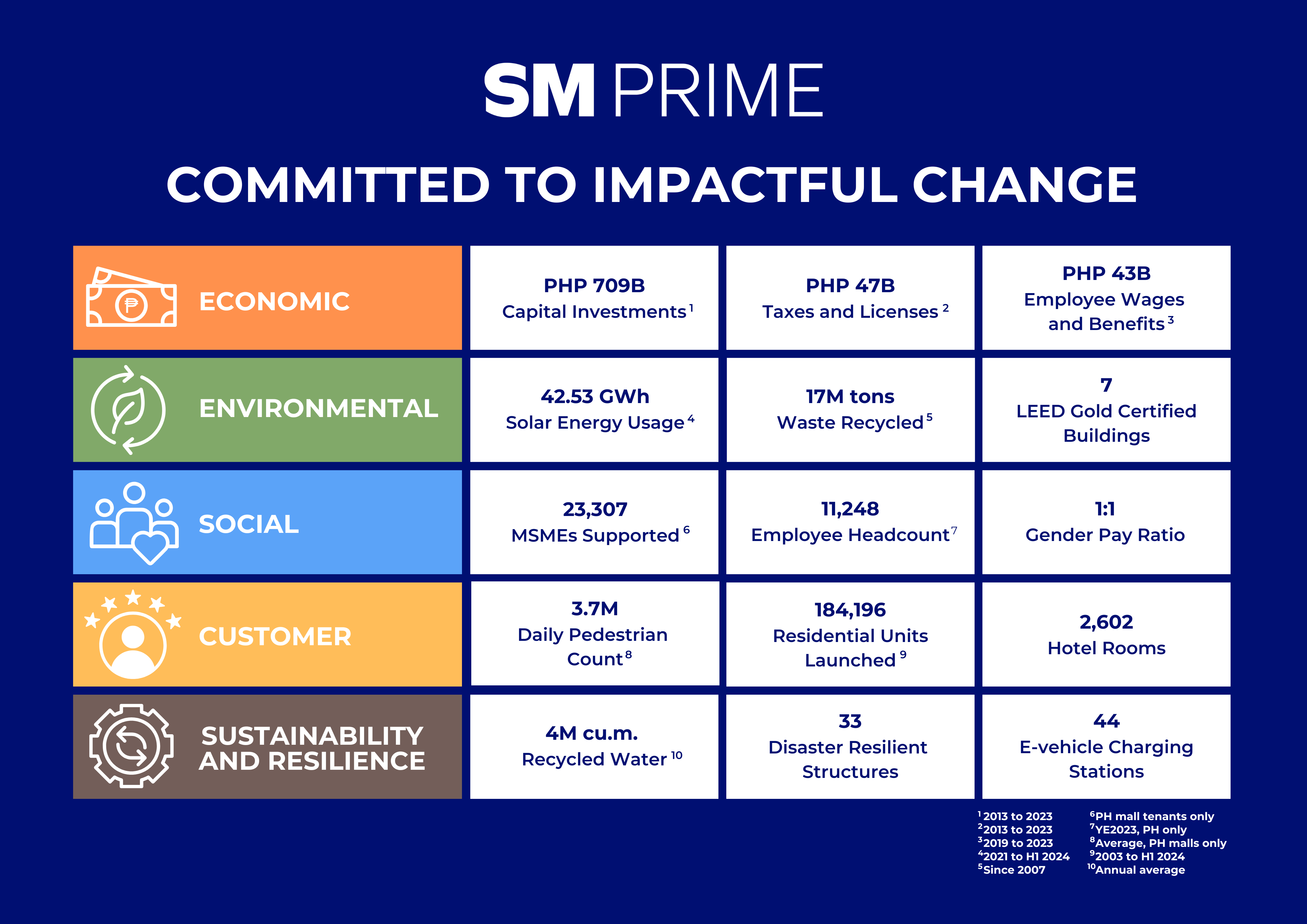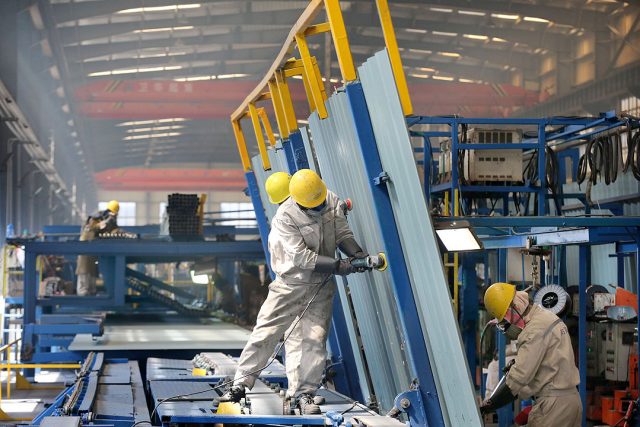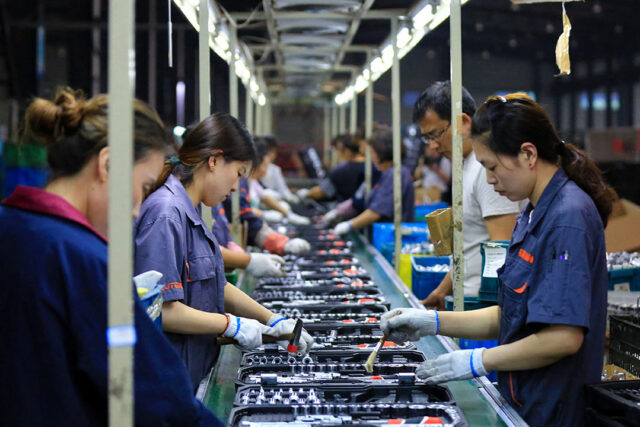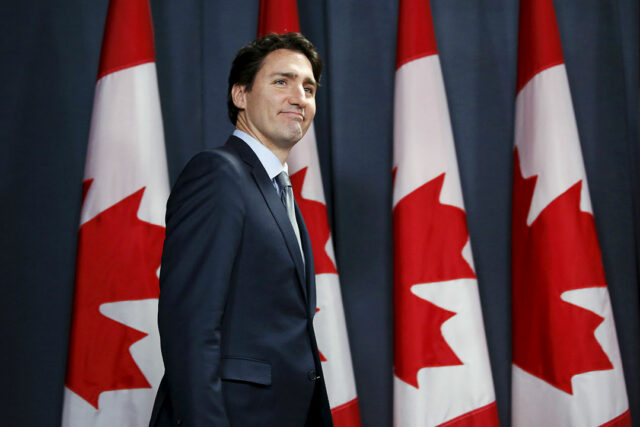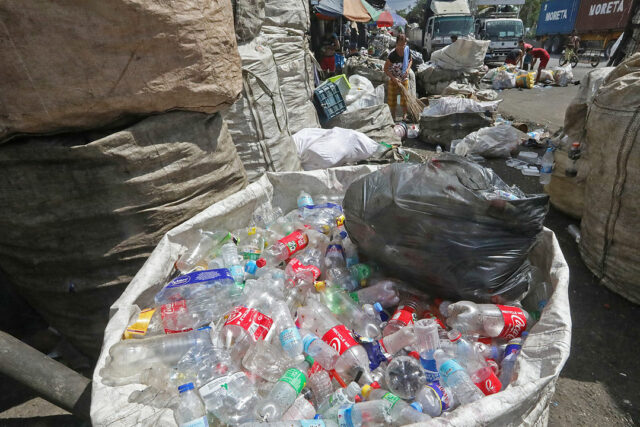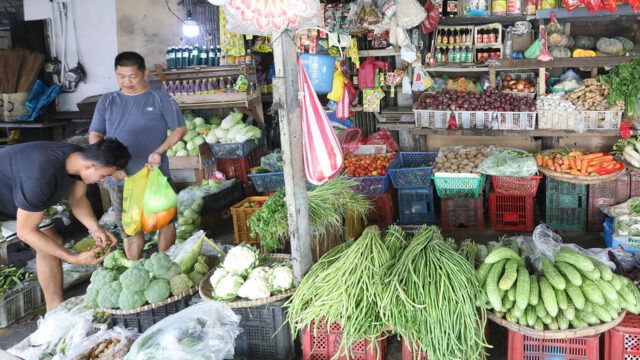By Luisa Maria Jacinta C. Jocson, Reporter
HEADLINE INFLATION may have picked up in November as prices of key food items rose due to the impact of several typhoons, analysts said.
A BusinessWorld poll of 15 analysts conducted last week yielded a median estimate of 2.5% for the November consumer price index (CPI), within the central bank’s 2.2% to 3% forecast for the month.
If realized, the November print would be slightly faster than the 2.3% clip in October but slower than 4.1% in the same month a year ago.

The Philippine Statistics Authority is scheduled to release November inflation data on Dec. 5.
“For November, we are expecting inflation growth at 2.5%. It is a slight uptick that highlights the impact of the several typhoons in October to November, affecting vegetable prices, causing broad food inflation to slightly climb,” Ruben Carlo O. Asuncion, chief economist at Union Bank of the Philippines, Inc., said.
In November alone, several storms hit the Philippines. The Philippines saw six typhoons entering its Area of Responsibility during the month, according to the Philippine Atmospheric, Geophysical, and Astronomical Services Administration.
Latest data from the Agriculture department showed that agricultural damage due to tropical cyclones Nika, Ofel and Pepito reached P785.68 million.
“We expect November’s inflation rate to rise slightly to 2.5% from October’s 2.3% print, driven in part by supply challenges caused by bad weather,” Bank of the Philippine Islands Lead Economist Emilio S. Neri, Jr. said.
“Weekly data on vegetable prices appear to have been affected by typhoons as month-on-month increases rose faster than October’s,” he added.
The Department of Agriculture (DA) last month said it expects prices of lowland vegetables to remain elevated as storm damage affected production.
Vegetable prices typically increase about 10-15% immediately after typhoons, the DA said.
Sarah Tan, an economist from Moody’s Analytics, likewise said that food inflation will be a significant factor behind the expected acceleration in the November print, largely due to the inclement weather.
“Among them, destruction to rice crops was most severe as the country’s largest rice-producing regions, Cagayan Valley and Central Luzon, were heavily impacted by the rain and landfalls,” Ms. Tan said.
“As domestic rice production shrank, rice imports are expected to have increased to fill that gap. Even with the lower rice tariffs, retail prices for rice would have moved higher,” she added.
Chinabank Research also noted that upward price pressures stemmed from higher prices of key food items such as fish, meat and eggs.
ENERGY, PESO
“Adding to the pain, utility providers upped the electricity rates in November from the prior month as they passed through some of the higher generation charges to consumers,” Ms. Tan said.
Manila Electric Co. also raised the overall rate by P0.4274 per kilowatt-hour (kWh) to P11.8569 per kWh in November from P11.4295 per kWh in October.
Ms. Tan also cited higher fuel prices during the month.
In November, pump price adjustments stood at a net increase of P1.70 a liter for gasoline, P3.20 a liter for diesel and P1.60 a liter for kerosene.
“Local pump prices rose in November, as recent events threatened oil supply in the global market,” Metropolitan Bank & Trust Co. (Metrobank) said.
Security Bank Vice-President and Research Division Head Angelo B. Taningco also noted the impact of the recent peso depreciation.
The peso sank to the P59-per-dollar level twice during the month, hitting the record low on Nov. 21 and 26.
“The non-negligible depreciation of the peso in November may have also added to inflationary pressures this month,” Mr. Neri added.
For the remaining months of the year, inflation will likely remain within the 2-4% target band, analysts said, but flagged potential risks to this outlook.
“Despite the upside pressure from the string of typhoons and geopolitical tensions, inflation will still remain within the BSP’s target range of 2-4% for the rest of the year,” Metrobank said.
Chinabank Research said inflation will remain within the BSP’s target band, barring any unexpected shocks. However, it noted adverse weather conditions may pose a risk to food prices.
The central bank expects inflation to average 3.1% this year. In the first 10 months, headline inflation averaged 3.3%.
“Inflation will likely remain manageable in the next six months, supported by the slower increase in rice prices and stable commodity prices amid the economic slowdown in major economies like China,” Mr. Neri said.
“However, we also see risks that could push inflation higher, such as weather disturbances and potential for further depreciation of the peso,” he added.
EASING TO CONTINUE
With inflation expected to remain within target, the central bank will also likely to continue its rate-cutting cycle, analysts said.
“I still think the BSP will stay on their schedule of cuts as inflation is seen to settle within their targets,” Oikonomia Advisory & Research, Inc. economist Reinielle Matt Erece said.
Pantheon Chief Emerging Asia Economist Miguel Chanco said that the weaker-than-expected gross domestic product (GDP) growth in the third quarter will also make the case for further rate cuts.
“I doubt the coming inflation print will be material for the BSP’s meeting (in December), which is likely to be dominated more by the weaker-than-expected third-quarter GDP print, which we think will persuade the Monetary Board to ease by a further 25 basis points (bps) next month,” he said.
The economy grew by an annual 5.2% in the July-to-September period, slowing from the revised 6.4% growth in the second quarter and 6% a year ago.
This was also the weakest growth in five quarters or since the 4.3% expansion in the second quarter in 2023.
“While GDP growth for the third quarter has been underwhelming, it might be difficult to hit our 2024 target of at least 6%. This may prompt the BSP to resume its rate cutting to give the economy a boost for growth,” Mr. Erece added.
Mr. Taningco said he expects the BSP to cut rates by another 25 bps in December as “inflation remains manageable.”
“With 2024 average inflation at near mid-target, the likelihood of another 25-bp cut in the Monetary Board’s December meeting is high because of price pressures being still manageable compared to its assessment in its previous October meeting,” Mr. Asuncion said.
BSP Governor Eli M. Remolona, Jr. earlier said that the Monetary Board could reduce or keep rates steady at its Dec. 19 meeting, its last policy review for the year.
For 2025, Sun Life Investment Management and Trust Corp. economist Patrick M. Ella expects up to 100 bps worth of rate cuts.
“We expect 100 bps next year (based on our model), but we are open to see a small likelihood of a rate pause in the first quarter on condition if the Fed also takes a pause on rate cuts. Otherwise, we see the BSP not interrupting their rate-cutting cycle for 2025,” he said.
Mr. Remolona also earlier said the Monetary Board could deliver rate reductions in the ballpark of 100 bps, but noted this would not necessarily be every meeting.
“The tandem of goal-consistent inflation and sub-target growth leaves enough room for the BSP to deliver another 25-bp cut in their last meeting in December and deliver an additional 75 bps worth of cuts in 2025 to support growth,” Metrobank said.
On the other hand, analysts cited risks that could cause the BSP’s easing cycle to go off schedule.
Mr. Neri said the Monetary Board’s decisions could depend on the peso’s behavior in the weeks to come.
“The currency has been under pressure recently, reflecting market adjustments to Federal Reserve rate cut expectations driven by the anticipated inflationary impact of Donald Trump’s economic policies as well as Fed Chair [Jerome] Powell’s comments downplaying the urgency of rate cuts,” he said.
The central bank could opt to keep rates steady if the Fed does not continue cutting rates or if the peso breaches the P60-per-dollar level, Mr. Neri added.
“Persistent upside pressure on inflation could drive the BSP to re-evaluate the pace of its easing cycle,” Metrobank said.
Mr. Asuncion also noted the probability of a “hawkish pause” as the BSP earlier said the balance of risks to the inflation outlook for next year until 2026 has shifted to the upside.
